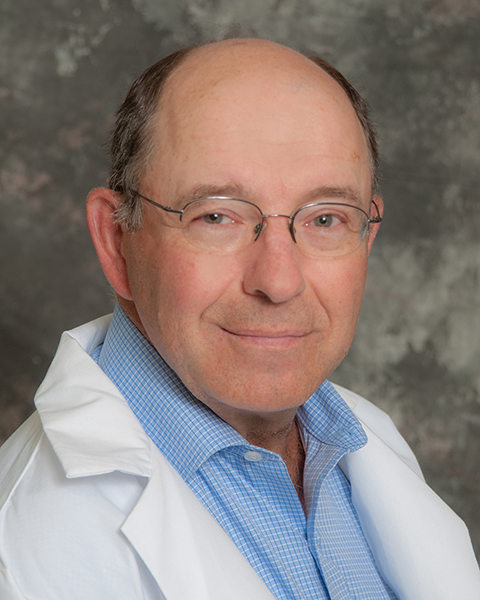Colorectal Cancer Awareness Month
Everyone wants to have a beautiful colon. Some of us just might not know it, yet.
The colon is an organ that removes water from digested food and moves the remainder of it along to leave the body through the rectum. It has a couple other names we use; bowels and large intestine are a couple. We may not like to talk about it, but everyone has a colon.
Keeping this organ healthy is important, according to Dr. Richard Latuska, gastroenterologist at Penn Highlands Healthcare. He specializes in the health of the esophagus, stomach, small intestine, colon, rectum, pancreas and liver. If the colon is not working right, it can make a person very miserable.
There are simple ways to keep it healthy. At any age, eating a well-balanced diet and an adequate amount of fiber can help a lot. But there is another important thing to do as we get older, and that is having a colonoscopy!
March is Colorectal Cancer Awareness Month. It’s the right time to think about colon health and the fact that every year, 140,000 people in the United States get colorectal cancer. It is the second leading cause of deaths in the U.S., according to the Centers for Disease Control. Yet, colorectal cancer is preventable.
Since the majority of new cases of colorectal cancer – about 90 percent – occur in people who are age 50 and older, “Have your colonoscopy when you turn 50 years old to remove any precancerous polyps,” Latuska said. “You may need to have your colonoscopy at a younger age if there is a family history (of colorectal cancer) or a particular condition that would warrant an earlier colonoscopy.” Some examples of a condition is testing positive for the Lynch syndrome gene or familial adenoma polyposis syndrome, which causes polyps at an earlier age.
A colonoscopy is a screening test used to look into the colon with a thin tube to see how healthy it is. This is usually done by a gastroenterologist like Latuska who performs many colonoscopies in the Endoscopy Center or GI Lab, both a part of Penn Highlands DuBois. They are also performed by gastroenterologists Dr. Christos Karalis and Dr. Juan Carrere and general surgeons, such as Dr. Eric Lundgren, Dr. Michael Wingate and Dr. Kelley Smith at Penn Highlands DuBois. General surgeons at other Penn Highlands Healthcare hospitals who perform them are: Dr. Denny Tang at Penn Highlands Brookville; Dr. Lisa Coughlin, Dr. Robert Steward, Dr. Douglas Yingling and Wingate at Penn Highlands Clearfield; Dr. Habib Zubair and Dr. Michael Felix at Penn Highlands Elk. At Penn Highlands Huntingdon, they are performed by gastroenterologists, Dr. Michael Gaugler and Dr. Keith Waddle.
“We are primarily looking for colon polyps,” Latuska said. “They start small, and then they grow.” During a colonoscopy, polyps can be removed with minimal effort and sent for a laboratory examination. “All cancers arise in polyps, but not all polyps that are removed have developed into cancer (or were going to),” Latuska said.
Removing the polyps before they grow into something you don’t want can prevent colorectal cancer or early findings of it, which make it easier to cure.
But why? One reason, the doctor said, is that “in the past, someone has told them (the reluctant people) about a bad experience that may have happened many years ago - before all of the improvements that have been made regarding sedation, colon cleansing and refinements in the colonoscopy technology.”
For sedation today, propofol is used. This drug “provides very rapid onset of sedation and amnesia. And once the medication is stopped at the end of the procedure, patients recover very quickly and are ready to go home generally within 10-15 minutes after their colonoscopy,” Latuska said. “Previous medications did not provide this depth of sedation and recovery from the sedation was much longer.”
For some, the drawback is the fear of the preparation. “Significant improvements have been made in the preparation for this test. Patients do not need to drink as much laxative preparation as in years past,” he said. “Of course, it remains extremely important for the patients to be compliant with the preparation prescribed. So that a beautifully-cleaned colon provides us the opportunity to identify these early and small polyps and easily remove them.”
And technology? “The optics, the visualization and magnification have the colon lining - which are monitored on large high definition TV screens - provide us with the opportunity also to identify the early and small polyps,” Latuska said.
In the past, if patients did not have polyps, they were to repeat their colonoscopy in 3-5 years. “But because of these significant improvement in visualization of the colon and better examinations, the colonoscopy follow ups for those without polyps are now at 10 years intervals!” he said. If he does find polyps, it depends on the finding as to when a patient comes back.
“We are a part of the National Quality Surveillance of the Colonoscopy Examinations, insuring adequate polyp detection with monitoring or detection rate and how long it takes for us to withdraw the scope and closely examine the colon,” Latuska said, and added, “Our nurses also assist in quality examinations by adding their expertise to help in detecting polyps and their commitment is demonstrated by the beautiful colon picture (accompanying this column) and education of even their children.” It’s a team effort.
“We take colorectal cancer awareness very seriously,” Carrie L. Adams RN, CGRN, Director of Gastroenterology Centers, Penn Highlands DuBois, said. She explains that if any patient has questions with prep, arrival time or where to go, please ask. “We want to give every one of our patients the ‘wow’ experience they deserve when they walk through our doors for their exams…please don’t hesitate to have this life-saving test.”

